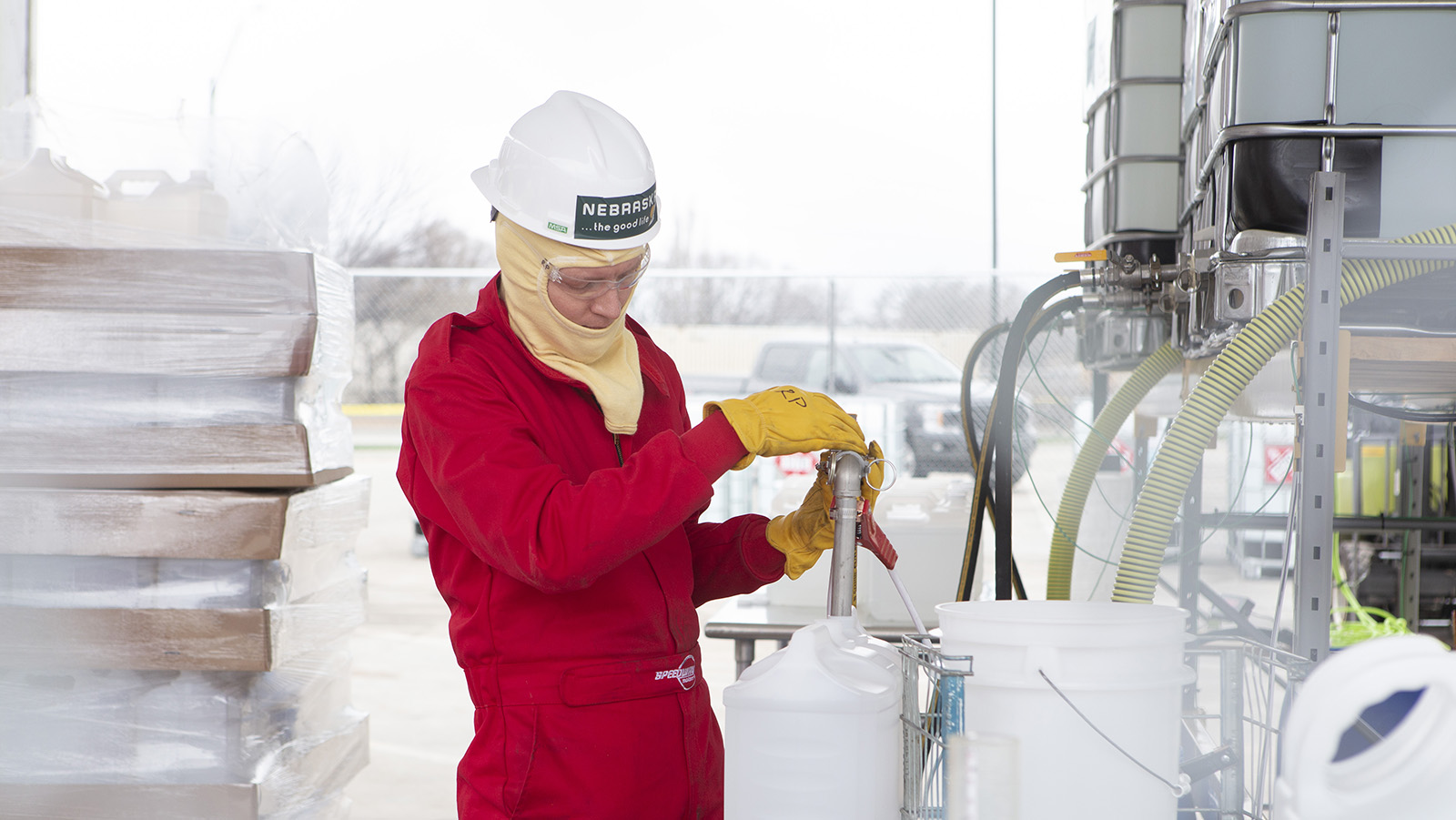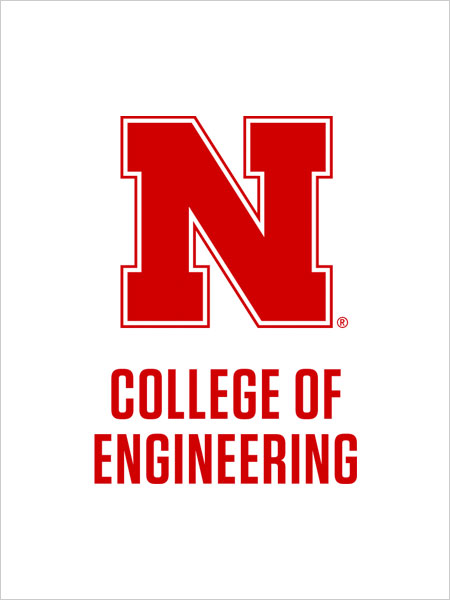
Application Deadline |
|---|
|
TARGET DATES FOR FULL FINANCIAL CONSIDERATION:
Fall: January 15 Otherwise: Rolling admission |
Application Checklist |
|---|
|
Required by the Office of Graduate Studies:
|
Required by Chemical Engineering |
|---|
|
As Nebraska's College of Engineering, we are deeply connected to the booming engineering and tech industries in the state and nationally, enabling our students to develop valuable connections and work on projects that impact the state and globally. We work to create an atmosphere that connects you with a diverse and welcoming community, while providing individualized support as you engage in coursework and research designed to maximize your experience for future success.
We offer a master's degree in Chemical Engineering and a Ph.D. in Chemical and Biomolecular Engineering.
M.S. in Chemical Engineering
(30 credits)
Chemical engineering is a technically demanding field, with opportunities for our students to advance to careers in industry, research and academia.
Our graduate coursework focuses on the advanced fundamentals of applied mathematics, chemical reaction kinetics, numerical methods, thermodynamics, transport phenomena, biomolecular engineering, and polymers. Designed to expand your knowledge of engineering principles and applications, you'll develop essential research expertise and other valuable skills.
Faculty in the department are actively involved in research related to biomolecular engineering, biomedical engineering, nanotechnology, polymers, composite materials, catalysis, and solid phase reactions.
Informal focus areas include:
- Applied Mathematics
- Chemical Reaction Kinetics
- Numerical Methods
- Polymers
- Thermodynamics
- Transport Phenomena
Students are encouraged to contact faculty in their specific areas of interest regarding funding and research opportunities.
Office of Graduate StudiesPh.D. in Chemical and Biomolecular Engineering
(90 credits)
Our doctoral program specially focuses on providing opportunities for our students to advance professionally in academia, as well as in industry and research.
Our graduate coursework offers study in advanced fundamentals of applied mathematics, chemical reaction kinetics, numerical methods, thermodynamics, transport phenomena, biomolecular engineering, and polymers.
Our faculty are actively involved in research related to biomolecular engineering, biomedical engineering, nanotechnology, polymers, composite materials, catalysis, and solid phase reactions.
Informal focus areas for our students include:
- Applied Mathematics
- Chemical Reaction Kinetics
- Numerical Methods
- Polymers
- Thermodynamics
- Transport Phenomena
Students are encouraged to contact faculty in their specific areas of interest regarding funding and research opportunities.
Office of Graduate StudiesResearch Areas
The Department of Chemical & Biomolecular Engineering offers a course of study designed for students who plan careers in a wide variety of industries, ranging from the chemical and process industries to biotechnology, electronics, and the environment. Our faculty are currently pursuing relevant, cutting edge research in the following areas:- Developing new regenerative medical materials and therapies using bio- and nanotechnologies to speed the repair and regrowth of bone, blood vessels and soft tissues in vivo
- Developing cutting edge genomic techniques like ultra-fast polymerase chain reaction (PCR) to search for emerging disease threats such as antibiotic-resistant tuberculosis
- Using proteomic instruments like a specialized mass spectrometer designed to search for new genetically engineered protein medicines
- Developing a new pliable bandage that can stop fatal bleeding from trauma in civilian and military applications
- Partnering with international healthcare systems to develop abundant supplies of hemophilia medicines from the milk of genetically engineered livestock to treat 80% of the world's hemophilia patients
- Discovering a device to give robots a human sense of touch using nanotechnology
- Developing a process for sustainable biofuels production
Chemical & Biomolecular Engineering Graduate Contacts

Rajib Saha
Richard L. and Carol S. McNeel Associate Professor
